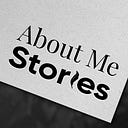Victim or Vessel?
What We Carry, What We Create, and What We Must Release
“Blame may feel like a shield, but it blocks the very clarity and healing we need.”
I’ve come to recognise a subtle yet powerful dynamic that plays out in our relationships — both with others and with ourselves. It’s the dance of responsibility and avoidance, the pull of blame, and the quiet truth of ownership.
At first, it’s easy to spot in others.
We all know someone who plays the victim in situations they’ve helped create — who spins their chaos into a tale of injustice, drawing others into their storm. There’s a temptation to rescue, to empathize, to soften the discomfort they refuse to face. But with time (and emotional fatigue), something shifts. We begin to see the toll it takes on us: the self-abandonment, the silent resentment, the emotional labor.
That’s when we learn an important boundary:
“I’m learning to recognise when someone consistently avoids responsibility for the chaos they create — and to step back with compassion, not guilt. It’s not my job to carry the weight of someone else’s story, especially when they refuse to own their part in it.”
This clarity, however, opens a deeper mirror — one that’s far less comfortable.
Because if we’re truly honest, we’ve all played the victim at times.
I’ve positioned myself as powerless in situations where, deep down, I knew I had a role in the problem. Blame felt easier than accountability. It offered the illusion of protection — look what they did to me — when in reality, it stalled my healing. Only when I began to take ownership, however uncomfortable, did I start to grow.
“I’m beginning to notice the times I’ve positioned myself as the victim in situations I helped create. It’s easier to point outward than inward, but I’m learning that true growth comes when I take ownership, even when it’s uncomfortable.”
The Psychology Behind It
This pattern — of both playing the victim and being pulled into someone else’s narrative — isn’t just anecdotal. It’s backed by decades of psychological insight.
- Victim Mentality is often rooted in learned helplessness, a concept introduced by psychologist Martin Seligman. When people repeatedly experience failure or discomfort, they may begin to believe they have no control — even when they do. This belief fosters passivity, blame, and emotional manipulation.
- The Karpman Drama Triangle illustrates the cycle we often get caught in: Victim → Rescuer → Persecutor. It’s a loop that keeps everyone disempowered unless one person consciously steps out.
- Emotional contagion studies show that emotions — especially those expressed repeatedly — are contagious. Being around someone stuck in blame or drama affects our nervous system, our energy, and even our self-perception.
- And finally, emotional intelligence — the ability to reflect, self-regulate, and take responsibility — is one of the strongest predictors of personal well-being and relationship health.
From Reaction to Reflection
So what do we do with all of this?
We begin by separating what’s ours to carry — and what’s not.
We learn that empathy doesn’t mean absorbing other people’s avoidance.
That stepping back isn’t cruel — it’s clarity.
That sometimes, the most loving thing we can do is not intervene.
And in parallel, we look inward.
We ask: Where have I been telling a story that shields me from my own responsibility?
We get honest, not harsh.
Curious, not condemning.
Quote Reflections
- “Step back from chaos with compassion. Step into truth with honesty. That’s where healing begins.”
- “Growth lives where grace meets accountability.”
- “The mirror never lies — but it will wait patiently until we’re ready to look.”
Final Thought: The Mirror and the Storm
In this journey, I’ve found that healing isn’t just about walking away from others’ storms — it’s about standing still in our own. Looking at the role we played. Owning it. Forgiving it. And then, releasing it.
That’s not weakness.
That’s transformation.
If this resonated, I invite you to reflect: Where might you be carrying what isn’t yours — and avoiding what is? What could change if you reversed that?

